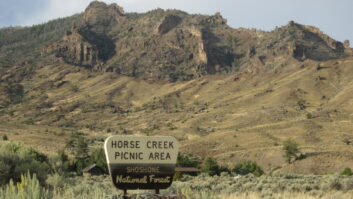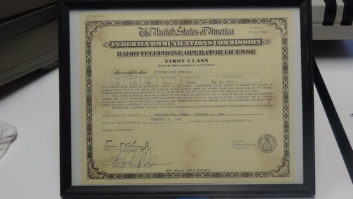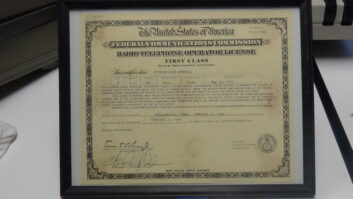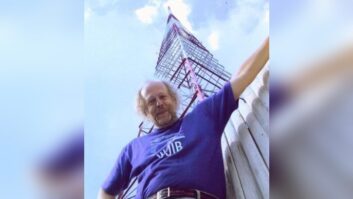Supported by an affidavit from its contract engineer, AM station WBNW in Concord, Mass., has overcome an objection to its license renewal.
The FCC denied a complaint from Jay Ayer, who told the commission that the “strong” nighttime signal from WBNW interferes with his reception of other AMs, and that he could detect no reduction in power at sunset.
The owner said it operated the station legally including reduced nighttime power and it provided an affidavit from engineer Douglas Lane describing its pattern change and power reduction routine via a Sine Systems remote control, backed up by a UPS.
“The operator on duty takes periodic transmitter readings to verify compliance with FCC licensed operations, and I personally make periodic site visits and take periodic readings to verify that the Sine System unit that is in place is at all times functioning correctly,” Lane wrote. The remote control system, he said, “certainly has not failed to function for extended periods as suggested” by Ayer.
The FCC said Ayer’s reception problems don’t appear to be the result of actionable “blanketing” interference but it encouraged the station to work with Ayer to try to resolve any disruption that might be partly due to its lawful operation. It also sent both of them a list of the five most common blanketing interference situations and outlined a broadcast station’s responsibilities in each case.











